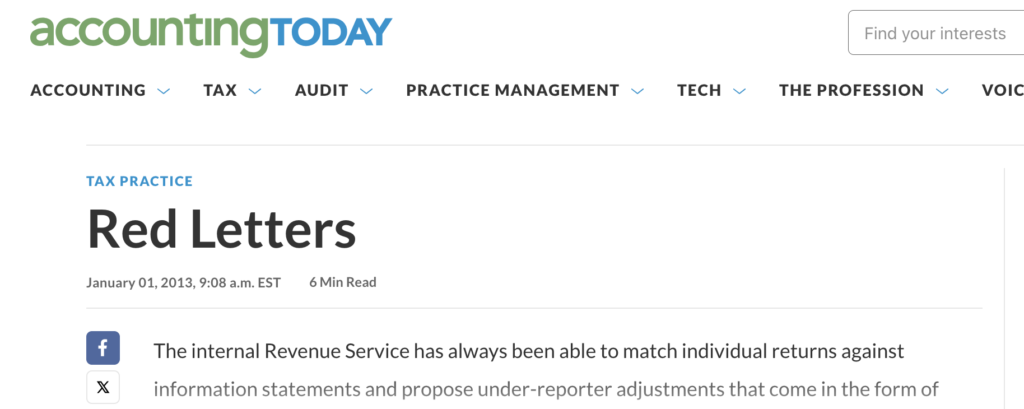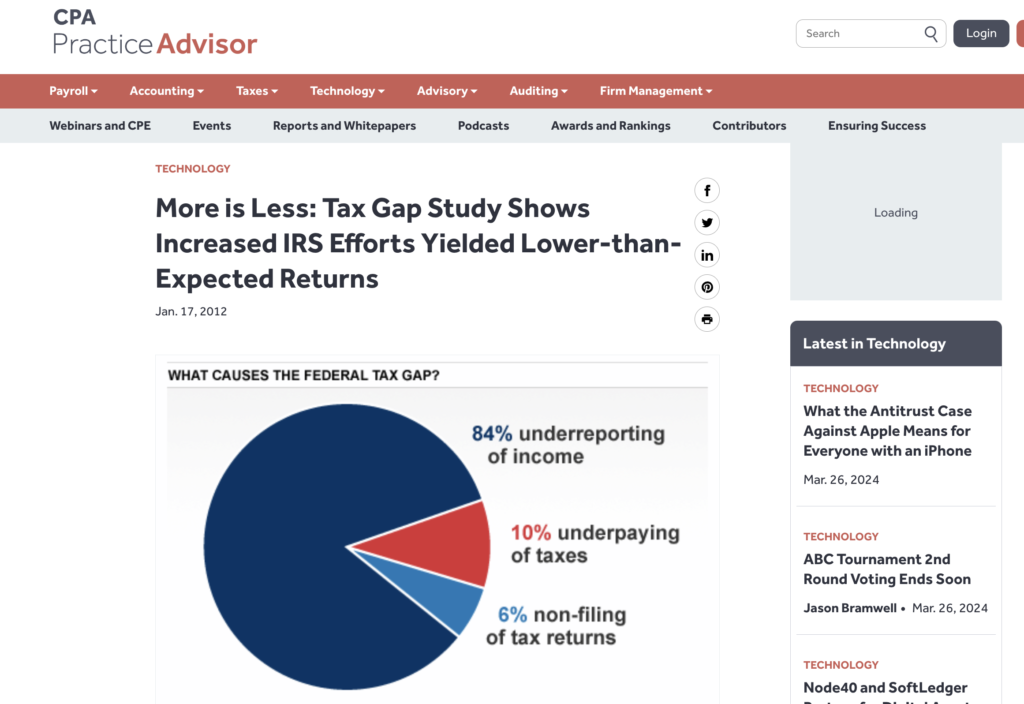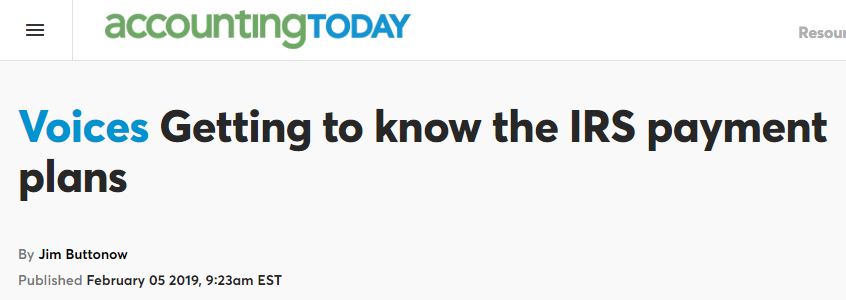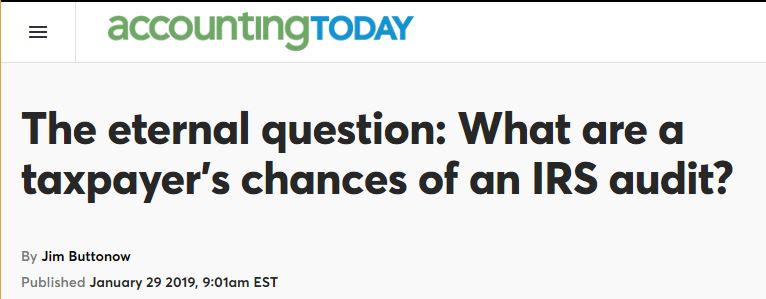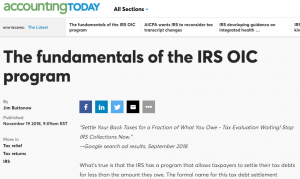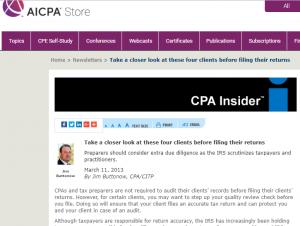Jim is regularly published in various tax industry publications and news articles. Most of the articles from Jim are listed below.
Browse published articles by IRS problem topic:
- IRS Audits (mail, office and field audits)
- IRS Collection issues and options
- IRS Penalties (abatement and procedure)
- Late/nonfiling (procedures, best practices, penalties)
- Underreporter Notices (CP2000s, matching notices, 1099-K matching)
- Dealing with the IRS (transcripts, tax identity theft, getting information from the IRS, etc.)
- Tax Administration (tax compliance issues, IRS procedures, future of IRS, IRS Policy)
